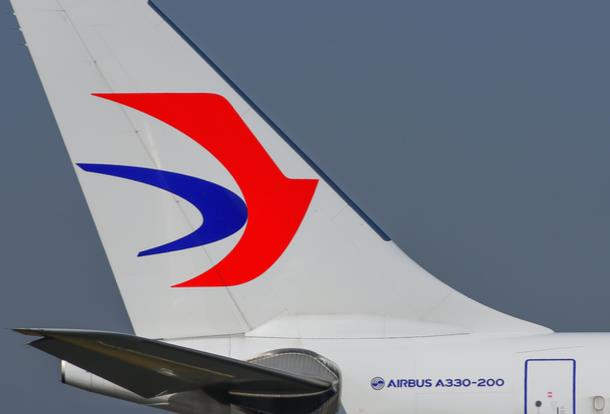Former Expedia boss Dara Khosrowshahi surprised much of the business world with his decision to move over to the top job at beleaguered rideshare behemoth Uber.
CFO Mark Okerstrom has taken up the CEO role of Expedia.
Tnooz had its turn to interview the affable Okerstrom, and here’s the conversation, edited for brevity and clarity.
Let’s start with the Big One. Is it difficult to step into the shoes of a Dara? That’s what everybody wants to know. Big shoes to fill, or you do you just try to fill different shoes?
It’s easy to step in the shoes because they’re so big!
I think, it’s one of these things that, even though the timing couldn’t have been predicted, the outcome was a very well thought out plan. Dara and I have been working very closely together, sitting six feet apart from each other for many, many, many years.
And, eventhough I absolutely miss having him around, and I think the people at Expedia miss having Dara around, he has been around for 12 years.
After the initial shock, I think people are pretty excited. And I’m super energized at the opportunity.
We’ve got just an amazing portfolio of businesses here that have just a huge amount of potential ahead of them. We got a leadership team that is fired up to take things to the next level.
And I am absolutely honored and excited to be at the helm.
There has been a lot of growth through M&A over the years. Do you see the growth, as you talk about taking it to the next level, focusing on the assets you have, and growing organically, or do you see a lot of M&A in the future?
I think we’ll always be opportunistic in M&A. It’s hard for us to stop doing it. We can’t stop ourselves.
We’ve always been very strategically oriented and financially disciplined in the acquisitions that we’ve done. And to the extent that we see something that is strategically and financially attractive, we’ll absolutely do it.
The last five years have been incredibly active on the deal front.
I think the next five years if I was a betting man, I would say probably less active.
Then the great thing is, to create a whole lot of value on a go forward basis for our supply partners and consumers and for our shareholders and employees.
We don’t need to buy anything else. We’ve got a stable of the world’s best travel businesses, and we can do a whole bunch to make these businesses we’ve got a lot better. A real focus on operations.
How does that tie into Expedia as a tech company and the A/B “test and learn” culture. How is that strategy panning out, as you continue to focus on these technologies?
Technology is at the core of it. We are a technology company that happens to apply its craft to the industry of travel.
When I use the word operational, what I really mean is better automation and better use of machine learning. And more analytical techniques to actually drive the right behaviors across the organization.
Test and learn, A/B testing, is absolutely fundamental to what we do on the consumer side of things.
But technology is everywhere. Technology is in finance, technology is in marketing, technology is what we are.
Looking to metasearch, do you think technology will help you find newer business models – the next metasearch if you will? Or will metasearch will continue to grow and also put some pressure on Expedia core business?
When we talk about the success of metasearch, what we’re really talking about is the success of Trivago.
We’re absolutely thrilled with their success and we think that that business model and that business has a very bright future ahead of it.
But, I also think that, as Hotels.com and brand Expedia push out their global boundaries and become much more locally relevant on a global basis, they’re going to reach a huge amount of success as well.
In the early stages of market entry for an OTA, when you’re just signing up new hotels and the consumers don’t know you very well, I think metasearch is a very valuable tool.
Ultimately though, once you get into a position where you are a mature player that has all of the hotels, good brand recognition – you can really stand on your own with these markets. Certainly, that’s where we are in a place like the United States.
Even when you’re at the top, even in the United States, you still think metasearch is a great channel for acquiring new customers. I think the two are definitely able to coexist.
Both models will continue to be great long into the future.
I was in China last week for TravelDaily conference, and Glenn Fogel from Priceline Group talked a lot about localization in China. Specifically about it being a core competitive advantage when you can be of the community and understand the differences. What is your localization strategy?
Generally, our localization strategy is a number-fold.
First of all, to be truly competitive in the sense that a local would view you as being competitive.
You’ve got to have all the relevant destinations and all the relative properties and inventory in those destinations. I think that’s table stakes. To the extent that you don’t have property coverage in the destination where the local businessman goes but no leisure traveler goes. It hurts your ability to compete.
Secondly, you’ve got to have local payment types. We’re a merchant and an agency player. So we have the ability to process payments from all around the world.
We’ve been very active in adding new forms of payment types, including relevant payment types in most of the Asian countries.
Thirdly, you got to also make sure that you’ve got proper translation and localization — and you’re doing it in the sense of how locals actually speak.
I think that’s where we’re getting better. We’re using a lot of automation in this which is great and scalable. And we’re working on actually making it better and giving it a little bit more of a human touch.
But I think that that is the key. I don’t disagree [with Glenn], being locally relevant is the recipe for success and global expansion.
Let’s talk a little bit about personalization and technology. This fits in with the way that different cultures like to be targeted their different travel conferences. What are your personal and professional thoughts on personalization and the road ahead to get better at matching offers to people and provide more targeted services to customers across all your brands?
Honestly, I think it’s a huge opportunity. It’s the next big thing potentially.
If you think about the first wave of online travel evolution or revolution, it it was really about taking the green screen that the travel agent used to look at, making it beautiful and putting them in the hands of consumers in the form of their smartphones now and their desktops originally – and helping them see all the choices and book themselves.
But where we still aren’t yet is to that spot where we were back in the 70s and 80s, where you would have had a travel agent that you always used, and they knew where you stayed.
And they knew what type of hotels you liked and they knew where you like to go in the summer and where you like to go in the winter. And they could already tailor their offering to you.
We’re not quite there yet. In the race between man and machine, in that respect, man is still winning.
This area of personalization and befitting to the title that OTAs got, which is online travel agent, is really yet to come.
It’s another one of these areas that a large scale player like ourselves – multi-brand, great capabilities and vast amounts of data – will put us in a position to do that potentially better than anyone else in the industry.
You mentioned trivago and the brand has had a great advertising campaign that worked well in the states. Another brand focused on advertising is Expedia Media Solutions. Is the brand still a bright spot for the company?
We’re actually really happy with the progress there. It’s actually been a nice revenue driver for us as we have gained more scale and as we have gained more capabilities around the around really targeting the right ad to the right customer at the right time.
It’s really resonated with our advertisers. We’re also working on just much easier tools for advertisers to use. Whether it’s in display advertising or whether it’s in our travel ads product, which is more of a bidded product that can allow hotels to pin themselves to certain spots in the search results.
We think there are huge advancements coming there on that front. It is a wonderful part of our business and it just continues to gather more and more steam.
Do you think you guys benefit a little bit from the overwhelming amount of technology and advertising options that any given hotel operator, basically any hospitality entity, has to deal with? And managing all that.
I think we benefit from it to the extent that our advertising placements are just so profoundly targeted.
The audience that we have on Expedia.com or Hotels.com has already designated themselves as wanting to travel.
And, you know, that’s not true with the New York Times, that’s not true with all of these other publishing formats.
Because we have travelers, in real-time, expressing travel intent – I want to go to New York or I want to stay in a five star hotel in New York or want to stay in a five-star hotel in Chelsea, New York.
It just gives our advertisers the ability to really target an audience that very few other travel platforms enable them to do. Or advertising platforms enable them to do.
Read original article




